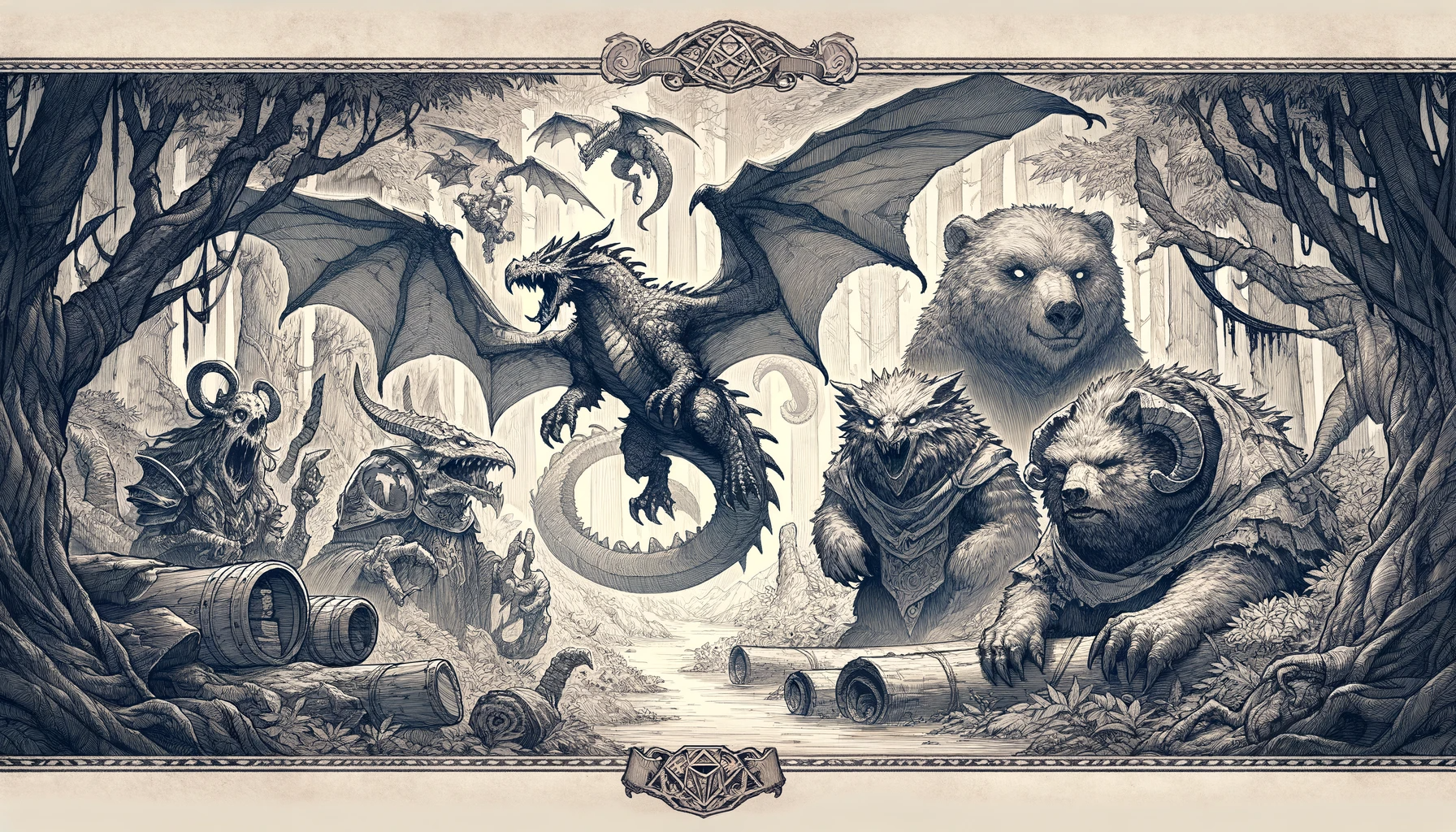Find Familiar
| Find Familiar | |
|---|---|
| 1st Level Spell, Conjuration, Summoning | |
Range: 1 mile/level Duration: Special Area of Effect: 1 familiar |
Components: V, S, M Casting Time: 2d12 hours Saving Throw: Special |
| Description: This spell enables the caster to attempt to summon a familiar to act as his aide and companion. Familiars are typically small creatures, such as cats, frogs, ferrets, crows, hawks, snakes, owls, ravens, toads, weasels, or even mice. A creature acting as a familiar can benefit a wizard, conveying its sensory powers to its master, conversing with him, and serving as a guard/scout/spy as well. A wizard can have only one familiar at a time, however, and he has no control over what sort of creature answers the summoning, if any at all come.
The creature is always more intelligent than others of its type (typically by 2 or 3 Intelligence points), and its bond with the wizard confers upon it an exceptionally long life. The wizard receives the heightened senses of his familiar, which grants the wizard a +1 bonus to all surprise die rolls. Normal familiars have 2–4 hit points plus 1 hit point per caster level, and an Armor Class of 7 (due to size, speed, etc.). The wizard has an empathic link with the familiar and can issue it mental commands at a distance of up to 1 mile. Note that empathic responses from the familiar are generally fairly basic—while able to communicate simple thoughts, these are often overwhelmed by instinctual responses. Thus, a ferret familiar spying on a band of orcs in the woods might lose its train of thought upon sighting a mouse. Certainly its communications to its master would be tinged with fear of the “big ones” it was spying on! The caster cannot see through the familiar’s eyes. If separated from the caster, the familiar loses 1 hit point each day, and dies if reduced to 0 hit points. When the familiar is in physical contact with its wizard, it gains the wizard’s saving throws against special attacks. If a special attack would normally cause damage, the familiar suffers no damage if the saving throw is successful and half damage if the saving throw is failed. If the familiar dies, the wizard must successfully roll an immediate system shock check or die. Even if he survives this check, the wizard loses 1 point from his Constitution when the familiar dies. The power of the conjuration is such that it can be attempted but once per year. When the wizard decides to find a familiar, he must load a brass brazier with charcoal. When this is burning well, he adds 1,000 gp worth of incense and herbs. The spell incantation is then begun and must be continued until the familiar comes or the casting time is finished. The DM secretly determines all results. Note that most familiars are not inherently magical, nor does a dispel magic spell send them away. Deliberate mistreatment, failure to feed and care for the familiar, or continuous unreasonable demands have adverse effects on the familiar’s relationship with its master. Purposely arranging the death of one’s own familiar incurs great disfavour from certain powerful entities, with dire results. | |
| Source: Player's Handbook (TSR2159), Page 174 | |
| D20 Roll | Familiar* | Sensory Powers |
|---|---|---|
| 1-5 | Cat, black | Excellent night vision & superior hearing |
| 6-7 | Crow | Excellent vision |
| 8-9 | Hawk | Very superior distance vision |
| 10–11 | Owl | Night vision equals human daylight vision, superior hearing |
| 12-13 | Toad | Wide-angle vision |
| 14-15 | Weasel | Superior hearing & very superior olfactory power |
| 16-20 | No familiar available within spell range |
- The DM can substitute other small animals suitable to the area.
